When sparks and grit bring AI to the patient
Raphael Sznitman, Director of the Center for Artificial Intelligence in Medicine (CAIM), is a leading expert at the interface between medicine, artificial intelligence (AI), and engineering. On the eve of the CAIM Opening, he talks about his motivation to research AI.
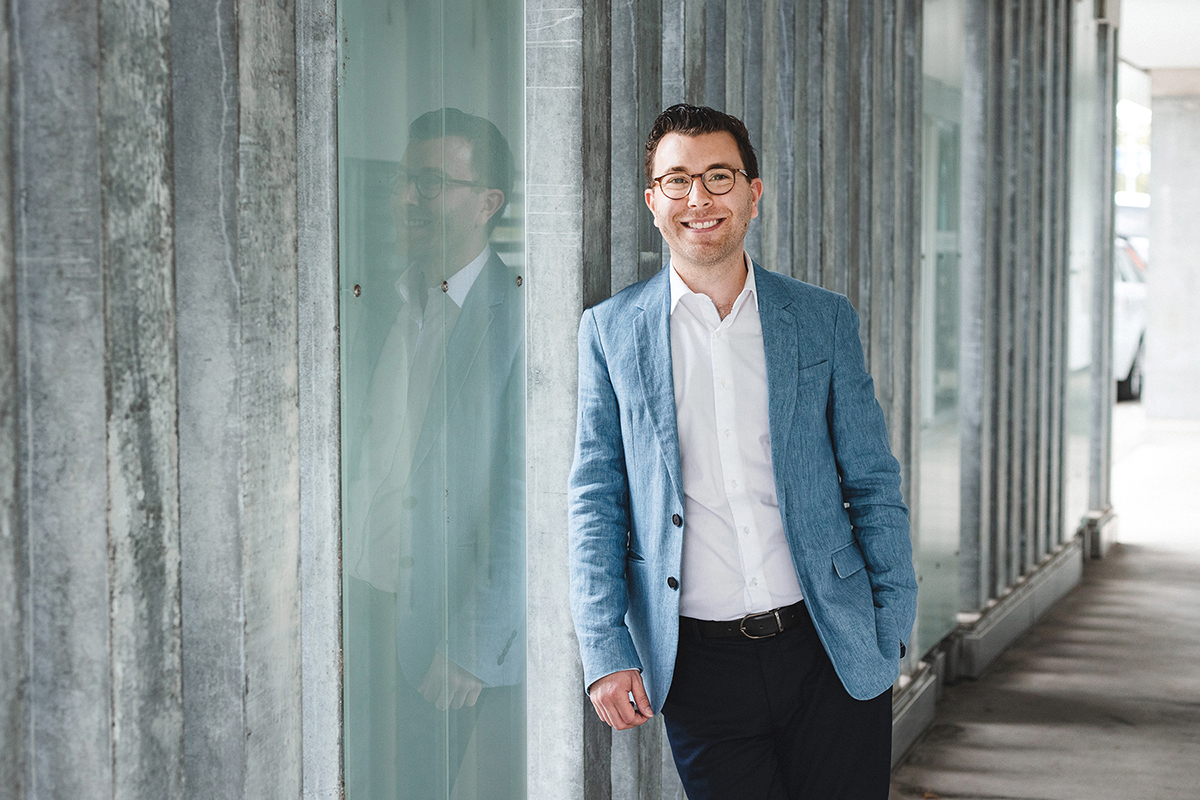
Essentially, in AI we take data and build as coherent a model of the world as possible. This journey of going from data to a compact representation that allows us to make predictions is what drove my curiosity from the very start. As humans we do it very naturally. How can we replicate or mimic these human-like behaviors, knowing that algorithms are not nearly as intelligent in the same way humans are? And how is data but also prior knowledge combined in good AI systems?
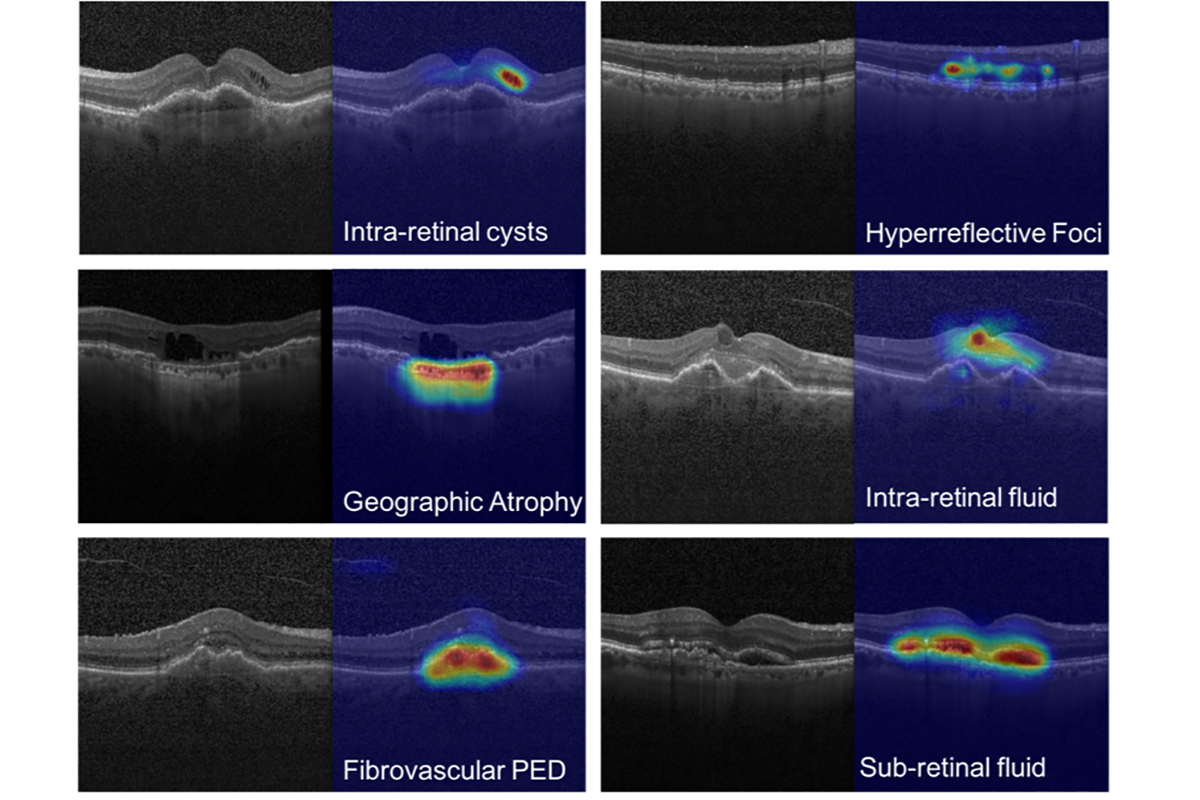
I think we are at the beginning of a long journey for AI in medicine. We are seeing data-driven AI providing new solutions that can allow streamlining of specific processes in diagnostics. We replace a component of a well-established healthcare pipeline and plug in an automation part, for example in radiology or in digital pathology. Here, AI has big potential, and we see many industry projects and technologies arising.
In the coming years this will develop, particularly in the area of precision medicine. Understanding suitable therapeutics based on the patient’s specifics and not just on general population level indicators. This is an area where AI will have a tremendous impact.
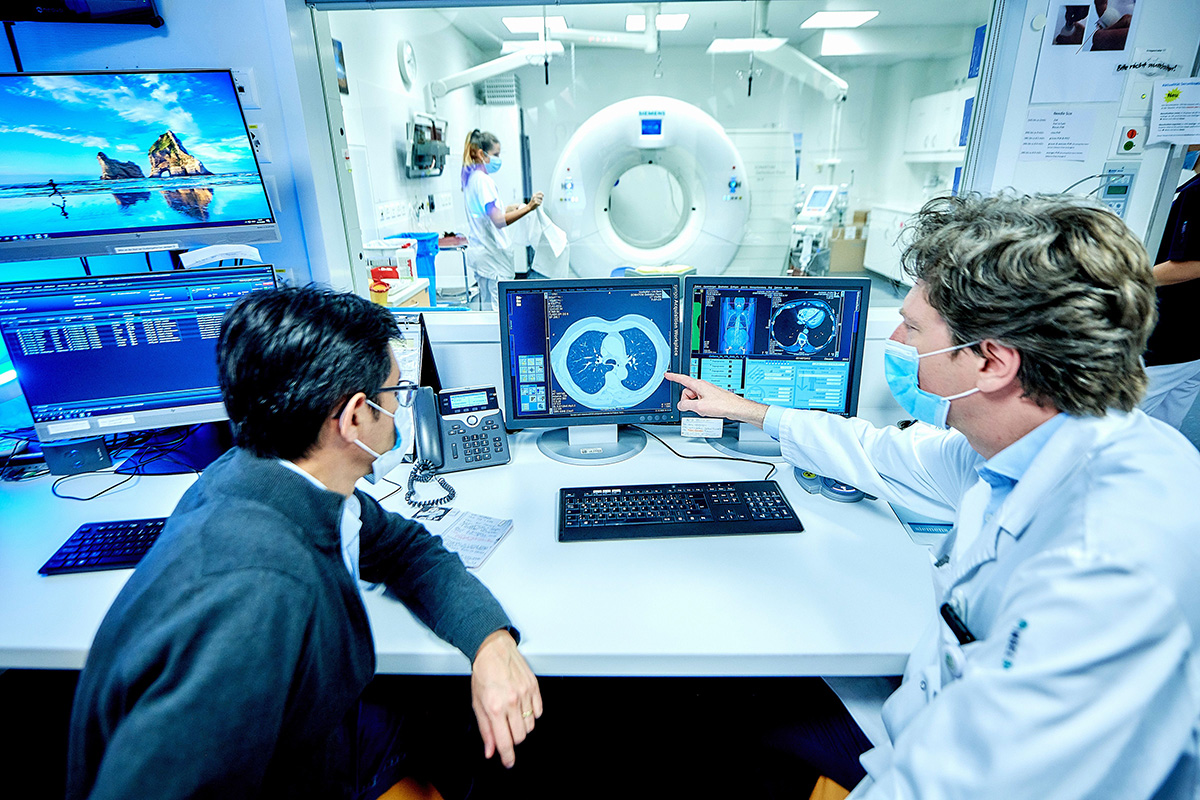
In good projects in this interdisciplinary field when you discuss with collaborators that are outside your domain there is a spark. This “Aha”-moment allows the two worlds, engineering and medicine, to connect on a really deep level about how an AI technology needs to be done. That moment is just really brilliant and it’s something that I am constantly chasing. The grit part is that for AI projects to succeed everyone has to be persistent. When you find a team of people with whom you have that shared goal, then projects become very powerful. With such a team there is a continued long-lasting interest and drive to iterate, improve, validate on the ideas, on the execution and on all aspects of the technology. You don’t see this in the research papers, but I believe it’s at the core of all successful AI projects in medicine.
A center for artificial intelligence - neither the first nor probably the last to be established. What is special about CAIM?What makes CAIM unique is our position within a medical faculty. The medical faculty of the University of Bern has a very long history of embedding engineers into a medical core, which was visionary at its inception 20 years ago. CAIM is a continuation of that concept into the digital space. The uniqueness of our center is that we are bringing together computer scientists, biomedical engineers and clinical experts in an integrated platform. We are doing this in an environment where people already have experience working together. And we are focusing on a direction with high potential.
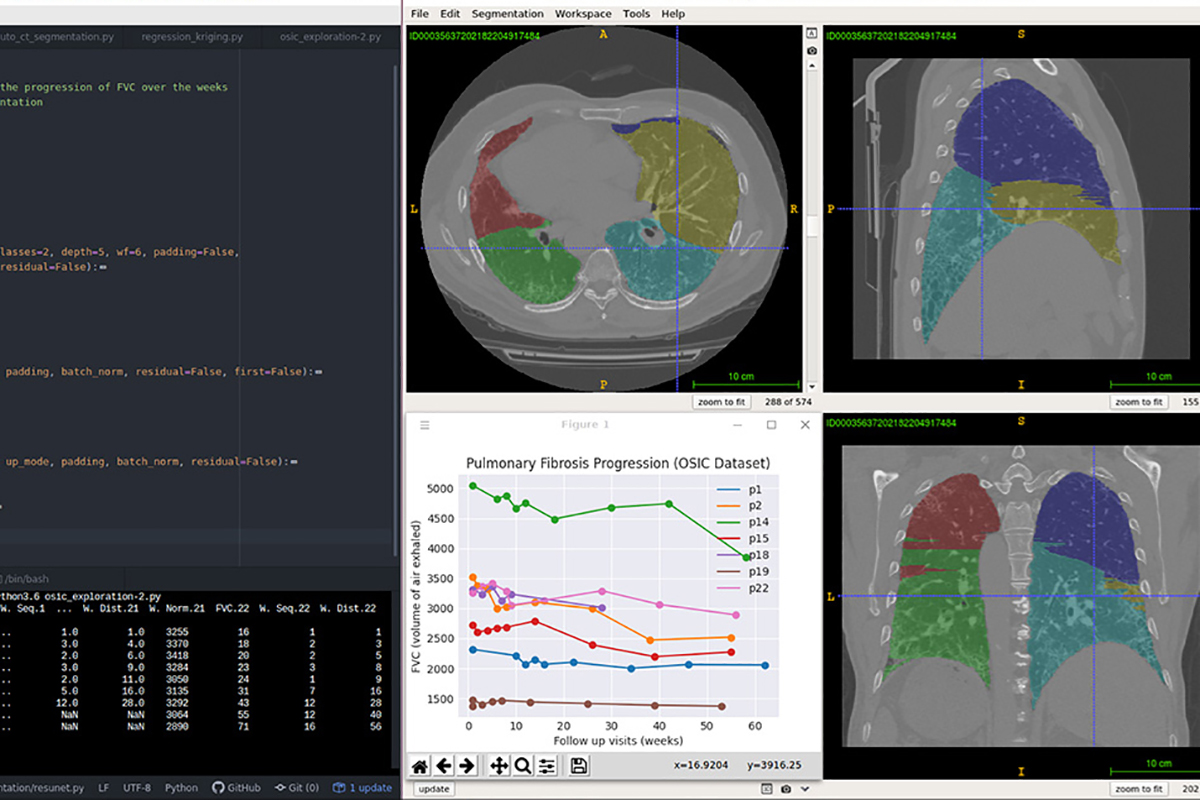
Our focus follows our history of translation: Going from an unmet clinical need to something that really has the ability to impact the patient. On the one hand, CAIM will consolidate and optimize resources and foster knowledge and expertise transfer on a national level. Here the strategy is to get more talent into the open, educate more people in this domain so that more clinical needs can be tackled. That is why we are developing a new Master’s program for AI in Medicine to train the next generation of experts in this area.
On the other hand, we want to have a good grasp of the wide range of AI projects that are ongoing or that are good ideas that should surface. We want to promote these projects and then transform them into flagship initiatives once they are mature and ready for translation. For this purpose, we are establishing a Research Project Fund. Internationally, we will connect to partners for strategic cooperation. Like many others, our consortium is strong on a number of topics. On other topics we plan to collaborate with national and international institutions to have impactful projects.
What are CAIM's next steps?In September we will be commencing our new master’s program. Also, we are planning for the first call for our Research Fund for this fall to allow researchers in the ecosystem to receive financial and infrastructure support to kick off new projects.
It will be inspiring to see the many different kinds of projects in which people are interested in exploring AI technologies for healthcare. And it will be a very exciting time for the upcoming students, who will integrate into our environment and get the opportunity to spend time in different clinics as part of their training.
Media release: Center for Artificial Intelligence in Medicine (CAIM) opens
Center for Artificial Intelligence in Medicine (CAIM)
The Center for Artificial Intelligence in Medicine is a research, teaching and translation platform for medical technology that uses AI to deliver better care to patients and facilitate the work of doctors and nurses. CAIM capitalizes on the unique constellation in Bern that joins players from the scientific, healthcare and industry domains. It will be inaugurated in January 2021 as a Center of the University of Bern’s medical faculty and the Inselspital, Bern University Hospital, with the University Psychiatry Services (UPD) and the Swiss Institute for Translational and Entrepreneurial Medicine, sitem-insel, as partners. Part of Bern’s initiative for digitalization in healthcare, CAIM is a virtual center connecting engineers, physicians and scientists in the area of AI in medicine and providing them with resources and access to infrastructure. By bundling transdisciplinary know-how from the Bern Biomedical Engineering Network, it promotes and expands projects dedicated to the potential of AI technology for healthcare. CAIM will foster commercialization of AI technology innovation, support start-up incubation and create sustained value through best in class research, translation and economic growth.
About Raphael Sznitman
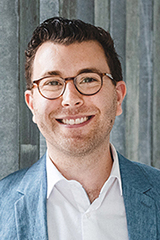
Raphael Sznitman graduated in cognitive systems from the University of British Columbia (Canada) in 2007. He received his PhD in computer science from Johns Hopkins University (USA) in 2011. He was then a postdoctoral fellow at the École Polytechnique Fédérale de Lausanne where he worked in the computer vision laboratory. In 2015, he joined the faculty of the ARTORG Center at the University of Bern. He is a full professor in AI for Medical Imaging and the director of the ARTORG Center for Biomedical Engineering and the Center of Artificial Intelligence in Medicine CAIM. His research interests are primarily in computational vision, probabilistic methods and statistical learning, applied to applications in medical imaging.
About the author
Monika Kugemann is Communications Lead of the ARTORG Center for Biomedical Engineering Research and Center for Artificial Intelligence in Medicine (CAIM) of the University of Bern.